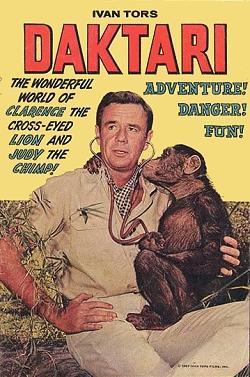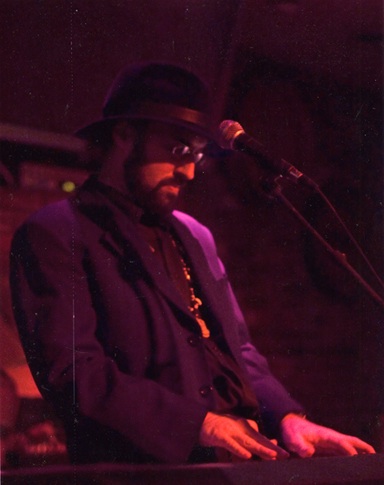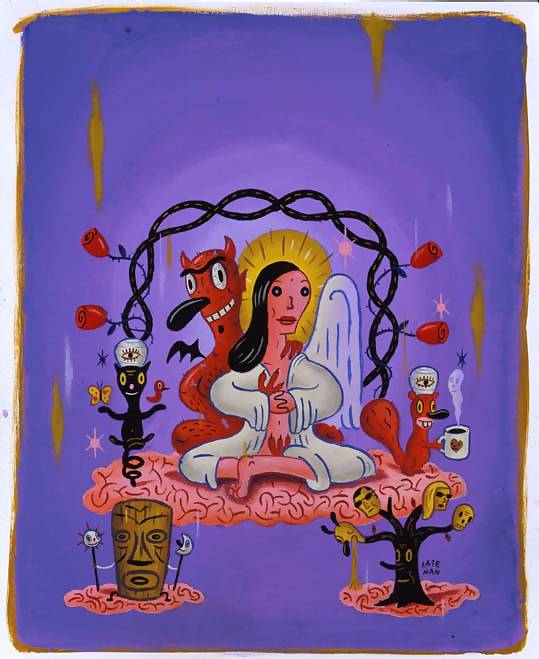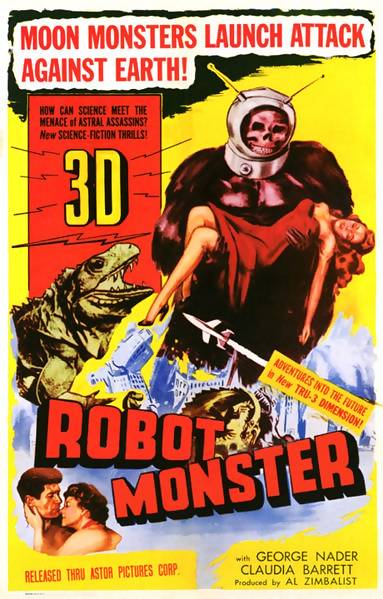|
THE RIP POST: This
is the only album Ičve ever encountered that has the word,
"cataleptic," in a song ("Knock This Gulag Down 1"). First, what
in hell does "cataleptic" mean, and second, did you have trouble
singing it?
MR. SMOLIN: Catalepsy is a form of
seizure that induces both unconsciousness and rigidity.
'Cataleptic' would be the adjectival form then, innit?
For me, the adjective 'cataleptic' aptly describes the mentality
of religious fundamentalists whose agenda of spiritual
imperialism poses a very real and growing threat to human
civilization. To accomplish their desired vise-grip on the minds
of all living persons, these zealots require adherents who are
unconscious and rigid and who do what they're told. A global
goon squad. The choir invisible and its ministry of cataleptic
voices. They long for a world in regress. They embrace the
retrograde. The Endarkenment. The planet's spreading deserts are
not just GEOlogical; they are IDEOlogical as well. I mean,
you're talking about people whose idea of Paradise is an
Absolute Monarchy. I could have called them 'brainwashed
zombies' in the song, but 'cataleptic voices' worked better
musically.
RP: Yowzah! Say hallelujah! Well,
you nailed that one. . .Continuing this theme, the vocabulary on
"The Crumbling Empire of White People" and the imagery and the
rhyme scheme and the poetry is not the kind of stuff that lends
itself to humming and skipping. Or does it? It is also the kind
of thing that should force the listener to sit down and read and
think. Your aim?
MR. SMOLIN: I spent my childhood
listening to AM pop radio, and the importance of catchy,
earworm-type melodies is deeply imprinted in my creative
make-up. I do in fact try to write tunes that people will find
themselves singing in the shower or while washing the dishes or
waiting for a red light to change, the sort of ditty that's in
your head when you wake up in the morning or when you're walking
home from school or thinking about your current crush or
watering the lawn.
When composing, I devote MUCH more time to melody than I do to
lyrics. I LOVE melody, real melody, melody that has a life
beyond the progression. A lot of modern songwriters, I'm talking
excellent, much respected artists, engage in a compositional
practice that I term "singing along with chords," a melodic
structure that's sort of lifeless and lazy and though it might
have isolated sparkles of wonder never really establishes a
total and coherent beauty, one that would still be there without
the ultra-hip chords and unusual voicings underneath.
RP: I know just what you mean. It's
the kind of music that makes me think guitars should be
licensed. I mean, you don't let a veterinarian build a house.
But please continue. . .
MR. SMOLIN: That said, I am, of
course, also passionate about language, and so, yes, my lyrics
can be complex and dense and consciously poetic. I'm drawn to
assonance, internal rhymes, unexpected juxtapositions, puns,
high-brow and low-brow allusions erupting in the same line, and
little crystalline aphorisms. I strive to communicate emotion
and idea in a package that is both humorous and illuminating.
RP: "The Crumbling Empire of
White People." Please explain the title. Given what I see in
Washington, D.C., the empire is very white and hardly crumbling.
And that includes Condi "White" Rice.
MR. SMOLIN: Oh, it's crumbling,
dude.
RP: Don't call me 'dude,' white
boy!
MR. SMOLIN: (unfazed) What you see in
Washington, D.C. are the last emperors, floating on a debt
bubble and trying to avoid for as long as possible the economic
collapse and environmental catastrophe that will ultimately do
them in. But, to be clear, the title of the album does not refer
specifically to American white people but to all descendants of
the fair-skinned tribes that descended from the Caucasus
Mountains around 2,500 B.C. and spread their culture and
methodology across the planet but whose heft and influence are
on the wane. We are witnessing the early stages in a final
decline of the white man's dominance. Military failures in
Afghanistan and Iraq and a far more devastating failure awaiting
us in Iran (if we are foolish enough to engage that nightmare)
are but the most obvious chinks in the armor. Israel's failure
to defeat Hezbollah in Lebanon is also another fold in the
movement toward 'paper tiger' status. Widespread disease and
starvation and thoroughly depleted government resources will
finish the job eventually, as climate change destroys the
eco-system and the food chain along with it.
On the other hand, perhaps the realization that ideology and
commerce and religion and cultural identity are all utterly
meaningless if the planet becomes uninhabitable will force our
species to work together for our very survival. "All for one
from pole to melting pole," as the narrator of the song "A
Goddamn Thing" sings. Might the crumbling inspire eventual
global unity? We can only hope.
RP: I have to say that "Toll
On You" is one of my preferred works on the album. I wouldnčt
mind if you would regale me with splendid tales of what is
behind the song, or in front of it, if you prefer. The
circumstances of its writing, and so forth.
MR. SMOLIN: "Toll On You" functions
as a kind of overture for the album. That's why it's the 1st
track. It touches on all the themes to be explored. The lyrics
to "Toll On You" were first inspired by John Donne's "Meditation
XVII," which says, in part, "All mankind is of one author, and
is one volume; when one man dies, one chapter is not torn out of
the book, but translated into a better language; and every
chapter must be so translated . . . As therefore the bell that
rings to a sermon, calls not upon the preacher only, but upon
the congregation to come: so this bell calls us all . . . No man
is an island, entire of itself . . . any man's death diminishes
me, because I am involved in mankind; and therefore never send
to know for whom the bell tolls; it tolls for thee." In
contemplating this passage I was struck by its profound
statement of interconnectedness among all living beings (and the
mortality we all share), and yet I was equally fascinated by the
way this beautiful and necessary interconnectedness is also the
very source of our sorrow and defeat. "Toll On You" therefore is
a compendium of all the little failures and crumblings, all the
little rejections and paralyses and betrayals that inevitably
occur in the life of every human being in interaction with other
human beings and take their little toll on one's spirit. It's a
song about the slow erosion of the human capacity for bliss and
fulfillment, a song for "every heart that feels defeated."
| RP: So John Donne was actually a
Buddhist, and didn't know it. . .By the way, congratulations.
You have accomplished something that no human being has ever
accomplished. You have rhymed "Mata Hari"with "Daktari." I dončt
think even the poet
Scott Wannberg ever pulled off anything that remarkable!
Now, did you really lose your heart to Mata Hari? Do you endless
pore over websites dedicated to her memory? |
 |
MR. SMOLIN: The song "Mata Hari" is
not autobiographical. It's an experiment in postmodern
narration.The thing came upon me quite unexpectedly. I was
driving down Fairfax Avenue near the La Brea Tar Pits one
afternoon and passed a furniture store called Mata Hari which,
for obvious reasons, triggered thoughts of the historical
figure. I had actually learned of Mata Hari when I was a kid
through the TV character Mata Hairi, the female consort of
Lancelot Link on the early-'70s children's show "Lancelot Link,
Secret Chimp," a Saturday morning program I adored when I was 10
years old.
RP: Yes, I remember the show. That
was where I first realized that chimps can speak.

Ms. Zelle, in better times. |
MR. SMOLIN: When my father told me
that character was based on a real person called Mata Hari, a
spy! (allegedly), I remember I went and looked up Mata Hari in
Compton's Encyclopedia and found the details of her life
fascinating. I even did a history report on her in 5th Grade.
Anyway, as I continued my car ride home, I thought about
Margaretha Zelle (Mata Hari's real name) and thought it would be
fascinating to approach her last moments from the point of view
of Edouard Clunet, her lawyer and former lover who was present
when she was awakened in her cell and taken to her execution at
dawn on October 15, 1917. Edouard Clunet is the narrative voice
in this song. It is reported she blew a kiss before the shots
rang out, probably to Clunet. But remember, this is history
filtered through the aesthetic sensibilities of a 21st Century
artist who gets off on anachronisms and other temporal
distortions, hence the reference to the 1960s TV show "Daktari"
and the naughty allusion to Clarence the Cross-eyed Lion from
that show in evoking the cunnilingus close-up ("cross-eyed in
the bush") experienced by a dude who'd died decades before
television was even invented. Historically accurate it ain't. |
RP: Do I detect deliberately
Zappa-esque singing on the phrase, "The Crumbling Empire of
White People?"
MR. SMOLIN: The singing on that
phrase was intended to be a satire on the sound of a very white
choir in semi-disarray (like the empire itself). The Zappa-esque
quality that resulted was not consciously intended, no, but it's
very cool regardless! I'm a fan of Zappa's musical achievement,
but I would not, in all honesty, put him on my list of
influences. One can admire an artist without being influenced by
him.
RP: Why do you write songs? You are
an accomplished and celebrated high school English teacher,
having been the subject of a marvelous write-up in the L.A.
Times that took due note of your rapport with students. You are
a venerable and well-liked L.A. radio host. You are a father of
sixteen or seventeen children. Well, come to think of it, maybe
these things are the reason you write songs! Have you always
been a musician and songwriter? How do you compose?
MR. SMOLIN: I have been writing
songs since I was 13 years old and have been drunk on music
since my earliest conscious encounters with organized sound (and
this includes the sounds of birds outside my bedroom window, the
scraping of rakes on concrete, the Helms Truck horn, air raid
sirens on Friday mornings, dogs howling along with ambulances as
they'd pass, etc.). The Beatles were the first pop artists that
I loved, and I was 3 years old in 1964, so they are imbedded in
my primeval memories. I literally grew up listening to The
Beatles, not really understanding their social importance at
all, hearing the albums my aunt would play when she babysat for
me and my sisters. The Beatles broke up when I was 9, but they
remained my favorites for a long time thereafter. When dealing
with The Beatles, though, there comes a point at which it's sort
of a waste of head-space to claim them as one's 'favorite'
because they are, in a way, beyond such a category. It's like
saying Shakespeare is your favorite writer. Well, duh. Nobody's
ever going to equal that, so create a separate echelon for
genius and make room for all the other great artists who are
also capable of illuminating you. The Beatles are The Beatles,
and then there's everybody else. All of my earliest songwriting
lessons came from listening to Lennon's and/or McCartney's work.
But, of course, I have had many many other mentors, including
Stephen Foster, Hoagy Carmichael, Jerome Kern, Stephen Sondheim,
Gilbert O'Sullivan, Bob Dylan, Leonard Cohen, and scads of
others.
I write songs because it is simply one of the ways I respond to
the world around me. I respond to the world in a variety of
ways. I teach. I make radio. I write prose. I husband. I father.
I love. I perform weddings occasionally. I contemplate the very
impulse-energy of reality itself. And I also compose music. It's
all one impulse as far as I'm concerned. Creativity is as
natural as breathing, dreaming, thinking, laughing, wishing,
wanting that cute girl to like you . . . same difference.
|

Mr. Smolin, live. |
Another reason I write songs is so that I can make music with
other people.
I was privileged to work on the new album with brilliant
musicians like Stew, Marc Doten, Harvey Canter, Probyn Gregory,
Vince Meghrouni, Josh Baldwin, Carl Sealove, Patria Jacobs, Seth
Kurland, John Lacques, Heidi Rodewald, et al. I consider myself
a mediocre piano player, an accompanist at best; these artists
brought to my songs everything that I can't bring as a musician.
I am eternally thankful that these gifted artists were willing
to use their scant free hours to be part of my little project. |
And Stew, of course, as producer, made my very basic
compositions into the apocalyptic pop tunes you hear on "The
Crumbling Empire Of White People." If pressed on the subject I'd
say that, in terms of the finished product, my role was pretty
much as the guy who wrote the music and lyrics and sang lead
vocals and played a teeny bit of piano, but Stew, Doten, and the
other musicians did everything else. They are the ones who
brought it all to life, not I. I'll definitely take full credit
for writing the shit, but as far as performance and execution
are concerned, all due props must go to Stew & Co.
RP: Youčve been playing for years
at Taix in Echo Park. . . Do you have any sense of who your
audience is? Who shows up? What is your goal as an earnest
singer and songwriter in a world that prefers music-product? I
ask this question as an earnest writer in a world that prefers
book-product.
MR. SMOLIN: I love playing at Taix.
It is by far my favorite room in Los Angeles. No rock club vibe
at all, which is great 'cause I hate rock club vibe. Mason, who
runs the room with a sensitive touch, has been able to maintain
this very warm, informal atmosphere, and although the space is
getting more coolness cred and more popularity by the day, my
sense about Mason is he's committed to keeping things warm and
informal over there. And, most importantly, the chairs at Taix
are extremely comfortable. This matters when you get to be a man
of my advanced age. I can't stand up on concrete floors all
night any longer. Just can't do it. I need a comfy chair.
Who shows up to Mr. Smolin shows? It depends. It's usually a
mixture of people who know me personally, curiosity seekers, and
mainly a bunch of folks who've come to see the next band.
As to my my goals as an artist? Those have changed over the
years. My initial goal was to become the Jewish Tom Jones.
Middle-aged women throwing their panties at me would have been
my ideal destiny. Alas, I have neither the length nor the
circumference to inspire that response. After that I aspired to
become the Christian Sammy Davis, Jr., but, again, that length
and circumference thing got in my way. And so now my goal, as a
citizen in the crumbling empire of white people, is to report on
life amid the impending ruins, whether psychological, political,
romantic, absurd, whatever form the ruination takes, and where
possible offer hope for the ultimate survival of our species
once it comes to its senses. Of COURSE I would love it if lots
of people turned onto my stuff and really dug it, but that's not
bloody likely and would really only be a sweet adjunct, not
integral to serving the muse at all. I've been working in a
vacuum for like 30 years. I'm very used to it. I create what I
create because it's involuntary. It's one of my natural
reflexes. An audience would be welcome but certainly isn't
required. I just keep doing what I do regardless.
And, of course, you know, every artist has a super-secret goal,
too, the one you don't write in your journal, the one you never
admit in public discourse. But I've decided to turn renegade
and, in a breach of artistic protocol, I am going to share with
you MY super-secret goal:
I want lesbians to worship me the way gay men worship Judy
Garland.
RP: Who the hell doesn't? Which, of
course, brings up your song, "Tilting." Well, it doesn't, but I
wanted to ask you about it anyhow.
MR. SMOLIN: Tilting is about the
loss of equilibrium in one's life when faced with universal
rejection. The narrative voice has found himself in a state of
skewed imbalance brought on by what he calls "unrequited
fantasy." The language and the music are intended to reflect the
teetering, precarious grasp on reality of someone who can't
connect with other human beings, specifically women, and never
will be able to (and knows it). It takes place in the bardo
between despair and collapse. Our hero chooses to mythologize
himself out of existence. He becomes a living symbol instead of
a human being, the embodiment of fear.
RP: "Twilight in America"---another
favorite of mine---would seem to indicate that you believe the
country is essentially cooked (as I do.) "No savants nor
dilettantes can save democracy/ Freedom reeks of Jesus-freaks in
veiled hypocrisy." Your comments?
MR. SMOLIN: Yes, "Twilight In
America" focuses on the American wing of the crumbling empire,
and I would submit that entropy has surely taken hold of this
country's vital organs and has begun its mortal squeeze. I also
maintain, though, that if we can somehow find our way to the end
of the Bush Crime Syndicate's stranglehold on power without
engaging in military action with Iran, AND if the American
people find it in their good senses to elect a president who is
not a shill for the corporate mafia or the evangelical mafia or
the jihad mafia (or any other subsidiary of the God Industry),
perhaps we can crawl out of this mess and set about the
unenviable task of reversing decades of environmental rape and
establish an American government that is willing to be an equal
partner with all the countries of the world in committing to the
rehabilitation of the only home we have, this precious,
critically ill planet.
RP: The album could have been
called "Knock This Gulag Down," after the sort of anthem that
recurs three times. . . We hardly live in a gulag, but we do
live in a country where laws are now in place to turn it into
one, should the government wish it. Do you really think the
"gulag" can be knocked down before it is erected?
MR. SMOLIN: Actually, I'm not
singing about the USA in that song: the 'gulag' I'm referring to
is mental. Akin to William Blake's "mind-forg'd manacles." That
gulag already DOES exist in the form of religious scriptures
read as literal truth and the rigid ideologies that behavior
inspires. You can only imprison people for so long physically
with oppressive laws and intrusive methods of social order
before they revolt, but apparently you can keep people enslaved
mentally (and by extension spiritually) for centuries upon
centuries upon centuries and they love you for it.
  
art by Gary
Baseman
The 'gulag' I'm singing about is not a physical prison, not some
vague Soviet nightmare scenario, not some Kafkaesque or
Orwellian dystopia with booted henchmen patrolling the streets
and asking to see your papers. No, the 'gulag' of the song is
right here in our lazy fearful brainstems. The 'gulag' is the
literal interpretation of mythology. There are those who teach
literalist hogwash to young minds that are easily indoctrinated
into the dogma of hatred. "Knee-jerk Literals" I call these
manipulators. They are snake-oil salesmen, essentially,
perpetuating an illusion.
Scriptural literalism robs us of possibility. I wish all the
children of the world could be shown a bigger, truer, more
nuanced version of reality's complexities than what they learn
about in their respective cultures. Ignorance is our worst
enemy. Freedom of expression must never be surrendered. Here's
to a future that "needs not clergyman nor king," to quote one of
my own songs once again.
RP: Congratulations on the line,
"robot monster with a parasol." Please explain.
MR. SMOLIN: Heh. Well, the image
'robot monster' actually comes from the famously bad
1953 cult abomination "Robot Monster," a film that people watch
when they are too stoned to care about character, plot,
technique, and art but just want to laugh their asses off while
pigging out on marijuana-munchie-fodder like tortilla chips and
5-layer dip from Trader Joe's or heaping bowls of Count Chocula
and half-and-half (I have probably revealed more about myself
than I meant to in this statement . . . ).
 But beyond the
low-brow cultural reference, that image of the "robot monster
with a parasol" (along with the rest of the stanza . . . 'nature
masquerading as a game' etc) is a commentary on the encroachment
of technology into the most human activities like walking down
the street on a sunny day. Believe me, I'm no Luddite. I LOVE the internet and satellite communications and
online-everything (my laptop computer is my best friend, I will
openly admit this), BUT the image of the 'robot monster with a
parasol' is intended to be a stark reminder that the great
threat of technology is that it will strip us of our ability to
interact socially in the real world and will turn us into mere
simulacra who appear to be walking down the street on a sunny
day when we are really ensconsed in our dark little geeky lairs
all alone posting shit we'd never actually have the courage to
say to real human beings out on the street. But beyond the
low-brow cultural reference, that image of the "robot monster
with a parasol" (along with the rest of the stanza . . . 'nature
masquerading as a game' etc) is a commentary on the encroachment
of technology into the most human activities like walking down
the street on a sunny day. Believe me, I'm no Luddite. I LOVE the internet and satellite communications and
online-everything (my laptop computer is my best friend, I will
openly admit this), BUT the image of the 'robot monster with a
parasol' is intended to be a stark reminder that the great
threat of technology is that it will strip us of our ability to
interact socially in the real world and will turn us into mere
simulacra who appear to be walking down the street on a sunny
day when we are really ensconsed in our dark little geeky lairs
all alone posting shit we'd never actually have the courage to
say to real human beings out on the street.
RP: Tell me a bit about the state of young people these days,
seeing as you teach them on a daily basis. The country seems in
a profound state of entropy, if that's the right word, content
as long as there is enough beer, twinkies, and TV. I have spoken
with a lot of UCLA students in the past couple of years, and I
get almost ZERO indication that there is any serious
comprehension of the problems facing the country---and little if
any desire to do anything out of compassion.
MR. SMOLIN: I'm the wrong guy to ask. I teach in an urban public high school
in the middle of Los Angeles, and the students who have passed
through my classroom over the past 20 years have been
overwhelmingly wonderful, compassionate, concerned about the
planet and the species, and committed to doing something about
the myriad crises facing us all as we grope our way, I hope,
toward global unity. I think young people today are more
connected to each other than ever before (due to electronic and
online communication technology) yet on the other hand they are
also fractured into a variety of niches when it comes to culture
and the creative arts. They don't have a spokesman because
they're all into these very narrow little scenes. There is no
Beatles or Bob Dylan to come forward as the public conscience of
a generation because there's no way to reach everybody with one
type of music anymore. You'd need
5 or 6 Dylans now, each playing in a different style. There's no
consensus icon. Harry Potter doesn't quite cut it. They are also
bombarded with shitloads of infotainment programs which utterly
blur news, art, and commerce. It can be difficult to see one's
way past that haze and into enlightened awareness of what's
really going on out there. I think we're all grappling with that
problem regardless of age. But I have a lot of faith in the
ability of young people to save our sorry asses. When it comes
down to "do or die," they'll "do."
Remember. . .Barry Smolin is host/producer of The Music Never Stops,
KPFK 90.7 FM--Los Angeles,
Sunday Nights 9pm-11pm Pacific Time |
![]() The Rip Post
Interview
The Rip Post
Interview